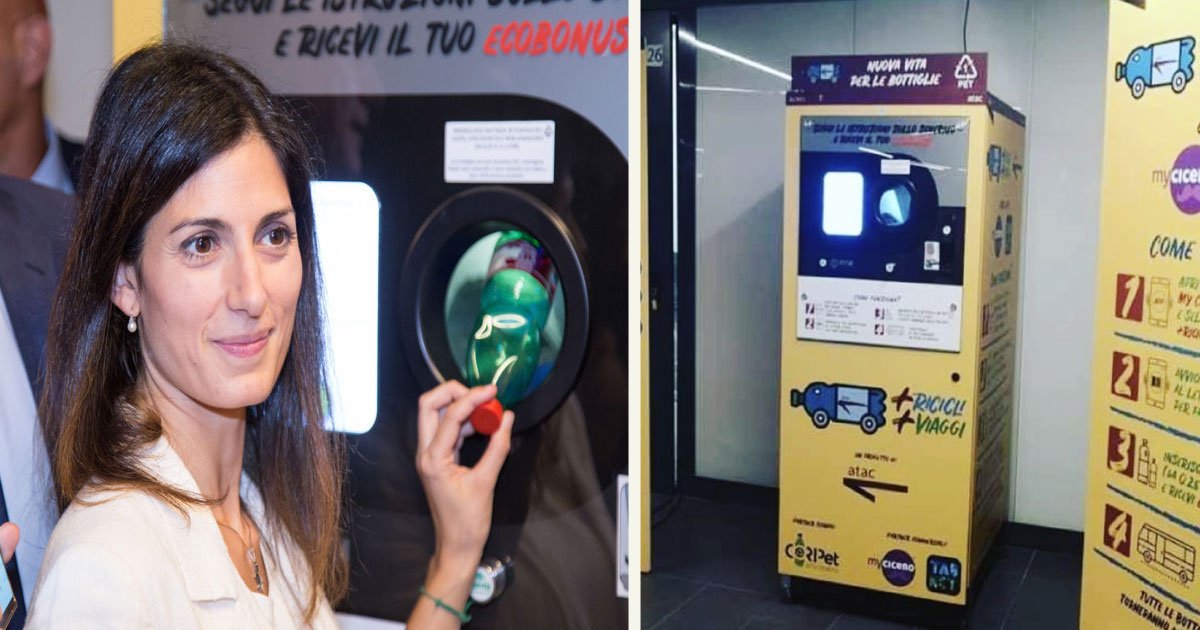People in Rome at metro stations are allowed to “earn” public transport tickets by recycling their old plastic bottles, local authorities have announced.
Now, the commuters in Rome can accumulate credits for the purchase of bus and metro tickets through the MyCicero and TabNet apps, will be in place for one year at three metro stations: Cipro on the A-line, Piramide on the B-line, and S. Giovanni on the C-line.
Commuters will get a credit of five cents for each plastic bottle they recycled, it means if they recycle 30 bottles they will receive a free $2 ticket.
Hailing the new system, Rome’s mayor Virginia Raggi said the capital was the first city in Italy, and among the first in Europe, to promote the environmentally-friendly initiative.
According to Rome’s transportation authority ATAC, the money goes to passengers’ accounts in partner apps MyCicero or Tabnet, and they can redeem it for public transportation.
ATAC President Paolo Simioni said that “in a period in which cryptocurrency is talked about, we have plastic currency. Substantially, it’s a system in which one recycles, we build customer loyalty and citizens’ virtuous behavior is rewarded.”
While Rome’s residents are angry at politicians over the garbage issue, Raggi insists the rubbish problem is created by organized crime gangs dealing in waste, known as “ecomafia.”
She said a ban on single-use plastics in the city would help “starve” the ecomafia of its “food.”
A promise made 15 days ago to clean the city – doesn’t seem to have worked out, as residents continue to protest over the state of their city.
Deposit return schemes (DRS) ensure that single-use plastic bottles are collected, instead of being discarded.
Therefore, DRS contributing to the implement the upcoming EU single-use plastic directive. Additionally, DRS bring in fiscal and economic benefits that complement the environmental one. For example, producers can decrease their production cost by using recycled materials, which is cheaper than extracting and processing new ones.
In Europe, until now, 10 countries have already implemented deposit return schemes:
Croatia
Denmark
Estonia
Finland
Germany
Iceland
Lithuania
Netherlands
Norway
and Sweden.
All have achieved significant results. The least successful country is Estonia, with an 82.7% total return rate – including can, PET and glass – which is already higher than many countries in Europe.





